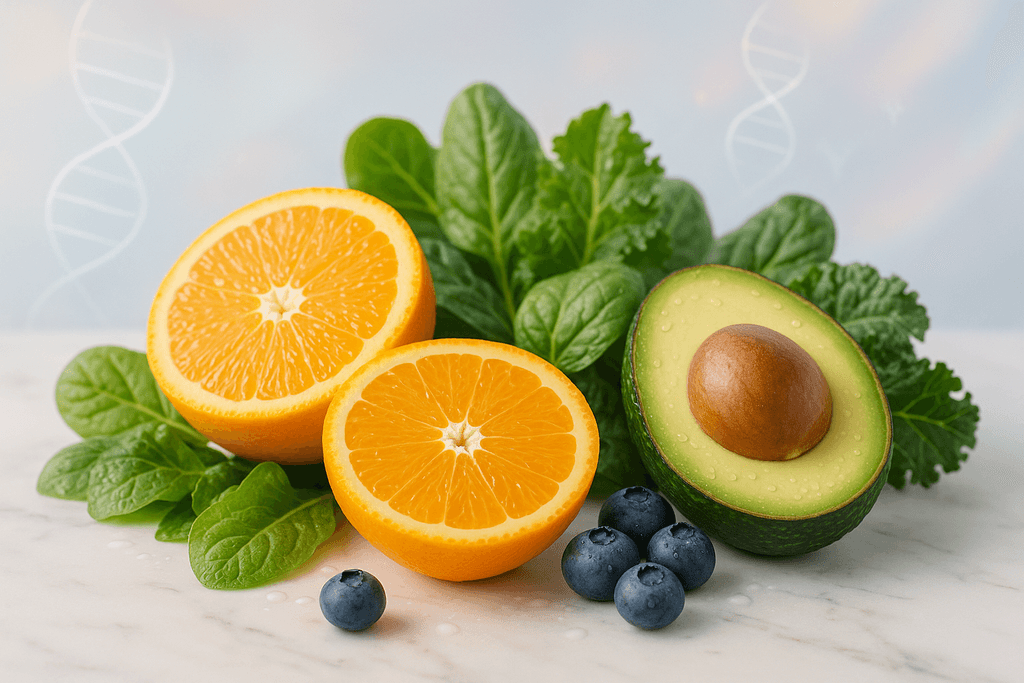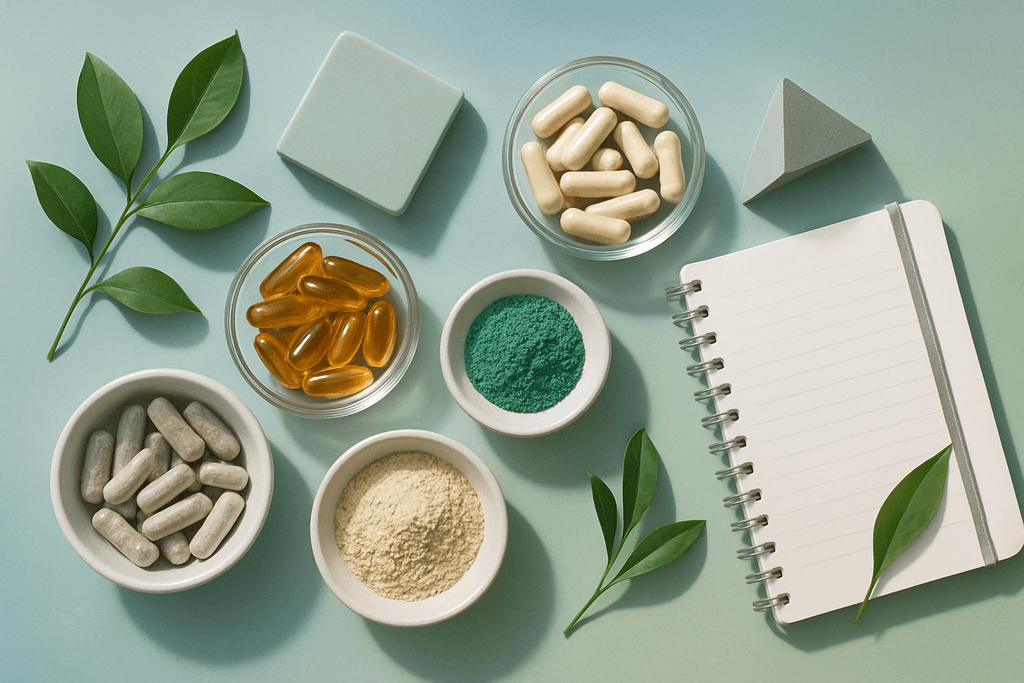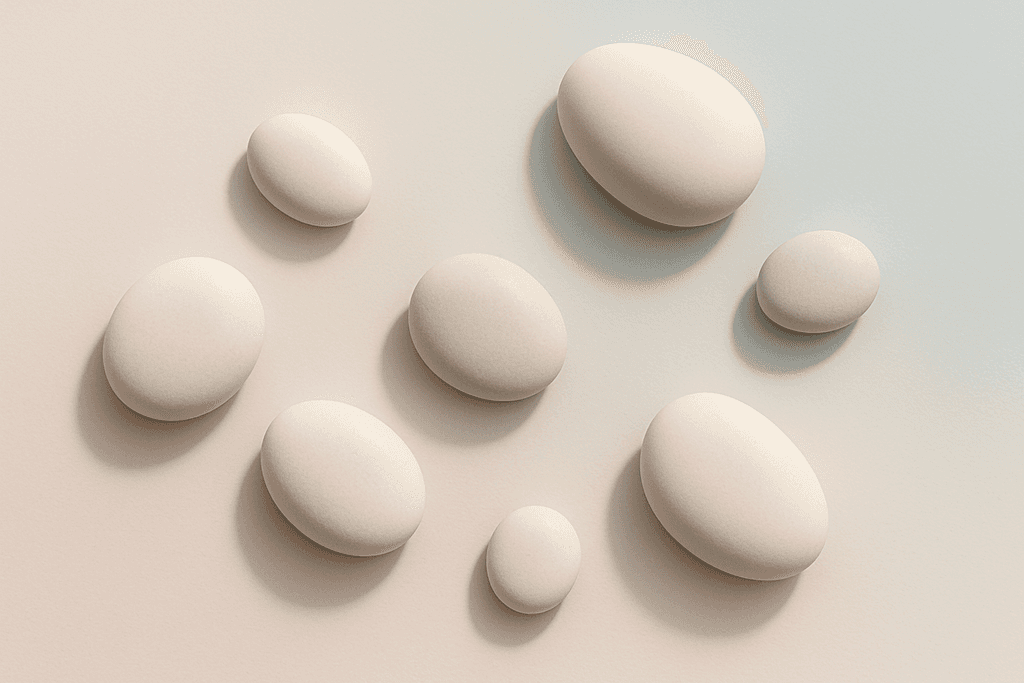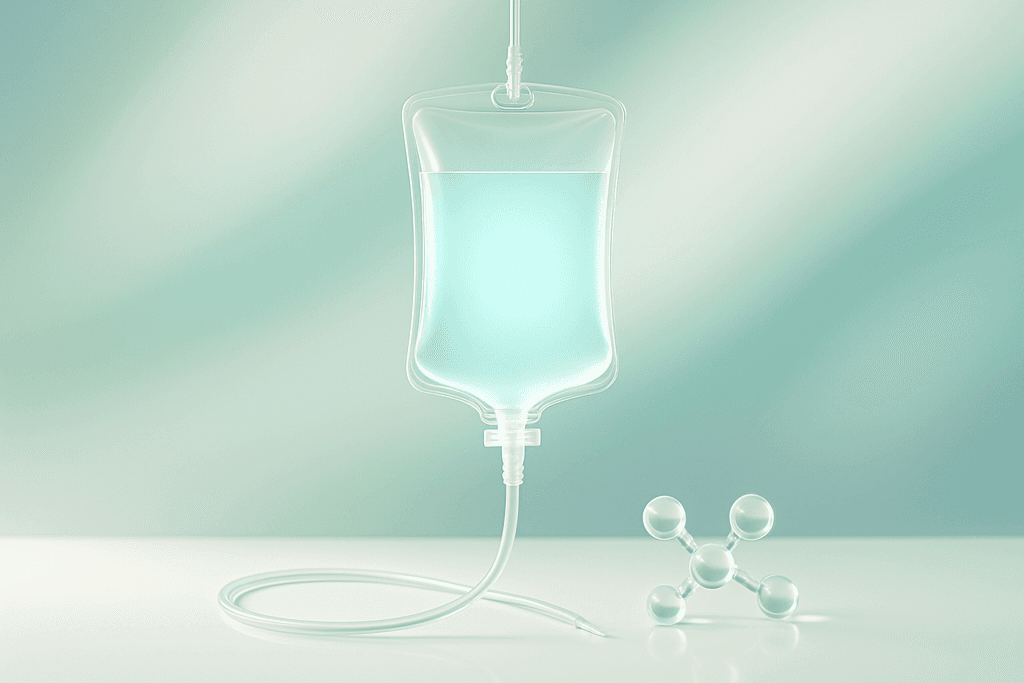Lifestyle Habits That Boost Natural Collagen Production

Your skin's youthful glow and firmness largely depend on collagen, a protein that naturally declines as we age. While this process is inevitable, certain lifestyle choices can significantly boost your body's collagen production. By incorporating these simple habits, you can support your skin's elasticity and overall health from the inside out.
Table of Contents
- Understanding Collagen
- Nutrition for Collagen Synthesis
- Maximizing Your Collagen-Boosting Efforts
- Wrap-up
- Common Questions About Collagen Production
Understanding Collagen
Collagen is the most abundant protein in our bodies, making up about 30% of our total protein content. It's often called the "glue" that holds us together, providing structure and support to our skin, bones, muscles, and more.
There are at least 16 different types of collagen, but types I, II, and III are the most common in the human body. Here's a quick breakdown:
- Type I: Found in skin, tendons, organs, and bones
- Type II: Main component of cartilage
- Type III: Supports muscles, organs, and arteries
As we age, our bodies naturally produce less collagen. This decline starts in our 20s and accelerates in our 30s and 40s. Several factors can speed up this process:
- Sun exposure
- Smoking
- Poor diet
- Lack of sleep
- Stress
When collagen production slows down, you might notice:
- Wrinkles and fine lines
- Sagging skin
- Joint pain
- Weaker muscles
The good news? You can boost your body's collagen production through lifestyle changes. Medical News Today reports that certain habits can stimulate collagen synthesis in the skin. At Caleyo Wellness, we offer treatments like microneedling that can kickstart your body's natural collagen production.
| Age Range | Estimated Collagen Decline |
|---|---|
| 20-30 | 1% per year |
| 30-40 | 1-2% per year |
| 40+ | 2% or more per year |
Understanding how collagen works in your body is the first step to maintaining youthful, healthy skin and a strong body. Let's explore some simple ways to boost your natural collagen production.
Nutrition for Collagen Synthesis
Your body needs the right building blocks to make collagen. Eating protein-rich foods is key. Chicken, fish, eggs, and beans all give your body the amino acids it needs to create collagen.
But protein alone isn't enough. Your body also needs vitamins and minerals to turn those proteins into collagen. Here are some important ones:
- Vitamin C: Found in citrus fruits, berries, and leafy greens
- Zinc: Present in nuts, seeds, and whole grains
- Copper: Available in shellfish, nuts, and seeds
Antioxidants play a big role too. They protect the collagen you already have from breaking down. Foods rich in antioxidants include:
- Berries (especially blueberries and strawberries)
- Dark leafy greens like kale and spinach
- Green tea
- Dark chocolate (in moderation)
A study published in the journal Cosmetics found that a diet rich in these nutrients can help improve skin elasticity and reduce signs of aging.
Exercise and Movement
Moving your body doesn't just keep you fit - it also helps boost collagen production. Different types of exercise can stimulate collagen synthesis in various ways:
- Strength training: Builds muscle and promotes collagen production in connective tissues
- High-intensity interval training (HIIT): Increases collagen production in skin
- Yoga: Improves flexibility and may help maintain skin elasticity
Regular movement is crucial for skin health. It improves blood flow, which delivers nutrients to your skin cells and helps remove waste products. Aim for at least 30 minutes of moderate exercise most days of the week.
But remember, balance is key. Too much intense exercise without proper recovery can actually break down collagen. Listen to your body and give it time to rest and repair.
Lifestyle and Skincare Practices
Your daily habits have a big impact on collagen production. Sleep is especially important. During deep sleep, your body repairs and regenerates skin cells. Aim for 7-9 hours of quality sleep each night.
Stress can wreak havoc on your skin. It increases cortisol levels, which can break down collagen. Try these stress-busting techniques:
- Meditation
- Deep breathing exercises
- Regular exercise
- Spending time in nature
When it comes to skincare, certain ingredients can help support collagen production. Here's a quick comparison:
| Ingredient | Benefits |
|---|---|
| Retinol | Stimulates collagen production, improves skin texture |
| Vitamin C | Antioxidant, supports collagen synthesis |
| Peptides | Signals skin to make more collagen |
At Caleyo Wellness, we offer personalized skincare consultations to help you choose the right products for your skin type and concerns. Our medical-grade solutions are designed to support your body's natural collagen production processes.
Remember, boosting collagen isn't just about looking good - it's about feeling good too. By adopting these lifestyle habits, you're not only supporting your skin's health but also improving your overall well-being. And if you're looking for more targeted solutions, our team at Caleyo Wellness is here to help with advanced treatments like our exclusive AutoCorre® protocol, which is designed to accelerate collagen and elastin synthesis for rapid, lasting skin rejuvenation.
Maximizing Your Collagen-Boosting Efforts
When it comes to boosting collagen naturally, combining strategies packs a powerful punch. Let's break down how you can get the most out of your collagen-supporting habits.
The power of synergy in collagen production
- Nutrition fuels your body's collagen factory
- Exercise stimulates collagen synthesis
- Proper skincare protects and nurtures existing collagen
By tackling collagen production from multiple angles, you create a snowball effect. Each positive habit reinforces the others, leading to more noticeable results over time.
But here's the kicker - what works for your friend might not work as well for you. Your unique genetic makeup, lifestyle, and current health status all play a role in how your body produces and maintains collagen.
- Assess your current diet and lifestyle
- Identify areas for improvement
- Gradually introduce new collagen-boosting habits
- Track changes in your skin's appearance and overall health
This personalized approach ensures you're not wasting time on strategies that don't serve your specific needs.
The real magic happens when you stick with these habits long-term. Research shows that collagen levels naturally decline with age, but consistent collagen-supporting practices can help slow this process.
Long-term benefits of collagen-boosting habits:
- Improved skin elasticity and hydration
- Stronger joints and bones
- Enhanced muscle recovery and growth
- Better overall skin health and appearance
Remember, boosting collagen isn't just about looking good - it's about feeling good from the inside out. At Caleyo Wellness, we understand the importance of a holistic approach to collagen production. Our personalized treatments, like our AutoCorre® protocol, work in harmony with your lifestyle habits to maximize collagen synthesis and skin rejuvenation.
Wrap-up
Boosting your natural collagen production doesn't have to be complicated. Simple lifestyle changes can make a big difference in how your skin looks and feels. Eating right, staying hydrated, getting enough sleep, and protecting your skin from the sun are all key habits to adopt.
Remember, consistency is crucial. Your skin won't transform overnight, but stick with these habits and you'll likely see improvements over time. And while these tips can help, sometimes our skin needs an extra boost.
At Caleyo Wellness, we offer treatments like our AutoCorre® protocol that can kickstart collagen production and enhance your natural efforts. Whether you're just starting your skincare journey or looking to take it to the next level, we're here to help you achieve your best skin yet.
Ready to learn more about collagen and skin health? Check out our FAQ section below for answers to common questions.
Common Questions About Collagen Production
How long does it take to see results from lifestyle changes?
Results vary, but most people start noticing improvements in skin texture and elasticity within 4-6 weeks of consistent lifestyle changes. More significant changes typically become apparent after 3-6 months. Remember, collagen production is a gradual process, so patience and consistency are key.
Are collagen supplements effective?
While some studies suggest collagen supplements can improve skin elasticity, the jury is still out on their overall effectiveness. Your body may not absorb collagen supplements as efficiently as natural sources. Focusing on a balanced diet rich in collagen-boosting nutrients often yields better results.
What are the best practices for different age groups?
For those in their 20s and 30s, prevention is key. Focus on sun protection, a healthy diet, and regular exercise. In your 40s and beyond, add targeted skincare with ingredients like retinoids and peptides. Regardless of age, staying hydrated and managing stress benefit collagen production.
Can I combine natural methods with professional treatments?
Absolutely. Natural lifestyle habits lay the foundation for healthy collagen production, while professional treatments can provide an extra boost. At Caleyo Wellness, we offer advanced collagen-stimulating treatments like our exclusive AutoCorre® protocol, which work synergistically with healthy lifestyle habits for optimal results.
How does stress affect collagen production?
Chronic stress can significantly impair collagen production by increasing cortisol levels, which break down collagen. Managing stress through techniques like meditation, yoga, or regular exercise can help maintain healthy collagen levels and improve overall skin health.
What role does sleep play in collagen production?
Quality sleep is crucial for collagen synthesis. During deep sleep, your body produces growth hormone, which stimulates collagen production. Aim for 7-9 hours of uninterrupted sleep nightly to support your body's natural collagen-building processes and overall skin health.



